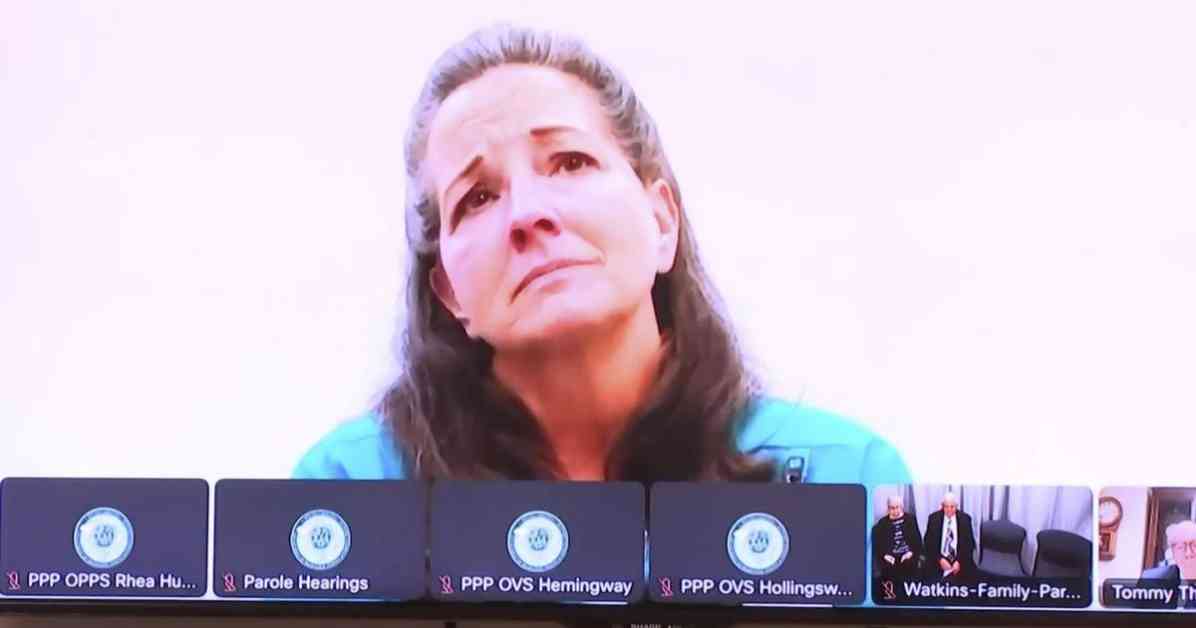Susan Smith, who infamously drowned her two young sons by rolling her car into a South Carolina lake 30 years ago, was recently denied parole after her first hearing. She is currently serving a life sentence after being convicted of murder but avoiding the death penalty. In her plea to the parole board, Smith expressed remorse for her actions, stating that she would do anything to change the past.
During the hearing, Smith broke down in tears and apologized for her terrible actions. She also mentioned that she believes God has forgiven her and requested mercy from the board. Her ex-husband, David Smith, and other family members, along with prosecutors and law enforcement officials, expressed their opposition to her parole, emphasizing the pain and trauma she caused.
Despite claiming to be remorseful, Smith has demonstrated behavior that raises concerns about her rehabilitation. While in prison, she engaged in inappropriate relationships with guards and violated prison policies by sharing contact information with a documentary producer. These actions led to consequences within the prison, including the loss of privileges.
In addition to the denial of parole, Smith’s case highlights the impact of her false accusations on the community. By falsely claiming that a Black man abducted her children, she perpetuated harmful stereotypes and caused unnecessary panic and fear among the public. Her case became a national sensation and underscored the importance of mental health treatment and accountability for criminal actions.
The parole board’s decision to deny her release was met with relief from David Smith and others who continue to seek justice for Michael and Alex. While Smith’s plea for forgiveness and redemption may evoke sympathy, her actions and lack of genuine remorse raise doubts about her readiness to reenter society. The parole system serves as a safeguard against releasing individuals who pose a risk to public safety, and in Smith’s case, the board determined that she is not yet eligible for parole.
As the case of Susan Smith continues to captivate public attention, it serves as a reminder of the devastating impact of her actions on her family, the state of South Carolina, and the nation as a whole. The denial of her parole reflects a commitment to justice and accountability for crimes committed, ensuring that those responsible for heinous acts are held responsible for their actions.






















